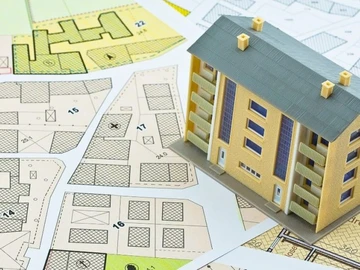Over the past decade, online property marketplaces have undergone a remarkable transformation. What began as simple listing platforms has grown into intelligent, interactive ecosystems that enhance the experience of buying, renting, or investing in property. From advanced digital tools to immersive technologies, here’s a look at how these platforms have evolved and what that means for buyers, sellers, and investors.
1. Enhanced User Experience
Modern property marketplaces prioritize ease of use, with clean, intuitive interfaces that make searching for a home or commercial space seamless. Today’s platforms offer:
- Advanced filters (price, location, property type, etc.)
- High-resolution images
- Interactive maps
- Saved search preferences and alerts
These features allow users to quickly narrow down options and focus on properties that meet their criteria.
2. Mobile Optimization
The rise of smartphones has made mobile access a must. Platforms are now optimized for mobile browsing, with apps or responsive websites that let users:
- Search listings on the go
- Save favorites in real time
- Communicate with agents instantly
- Schedule viewings or request information from anywhere
3. Virtual Tours & 3D Visualization
Technologies like virtual reality (VR) and augmented reality (AR) have revolutionized property viewing. Today’s leading platforms offer:
- 360° virtual tours of listings
- Interactive 3D walkthroughs
- AR tools to visualize furniture or renovations in a space
This creates a more immersive experience especially valuable for remote buyers or diaspora investors.
4. Data-Driven Insights
Data analytics plays a key role in real estate decision-making. Platforms now integrate:
- Price trend analysis
- Neighborhood comparisons
- Investment forecasts
- Demand and supply analytics
These insights empower users to make smarter investment and buying decisions based on real-time market data.
5. Built-In Financial Tools
Understanding what you can afford is crucial in real estate. Many platforms now provide:
- Mortgage calculators
- Affordability estimators
- Loan qualification tools
- Deposit vs. repayment planning features
This allows buyers to gauge their financial readiness before engaging with sellers or agents.
6. Social & Community Features
To foster collaboration and trust, online platforms are now offering:
- Chat and messaging with agents
- Shareable property links
- Ratings and reviews for agents and developers
This builds a more transparent, community-driven property ecosystem.
7. Expanded Listings: Rentals & Commercial
Originally geared toward home sales, today’s marketplaces have diversified to include:
- Short- and long-term rentals
- Commercial properties (retail, office, industrial)
- Student housing, co-living, and hospitality spaces
This opens up opportunities for a wider range of property seekers and investors.
8. Artificial Intelligence & Machine Learning
AI and ML are enhancing efficiency in areas such as:
- Personalized property recommendations
- Chatbots for instant customer service
- Smart pricing estimations
- Predictive analytics for investment performance
These tools streamline the property search and transaction processes.
9. Smart Home Integration
Smart home tech is now a major selling point. Online listings are beginning to showcase properties equipped with:
- Remote-controlled lighting, security, and thermostats
- Energy-efficient devices
- Systems that notify of maintenance issues
Buyers can assess how connected and efficient a home is before visiting.
10. Blockchain & Smart Contracts
Blockchain is being explored to simplify property transactions by:
- Enabling secure digital title transfers
- Automating contracts through smart contract systems
- Reducing fraud and paperwork
This could dramatically speed up property sales and transfers in the near future.
11. Sustainability in Proptech
Green building technologies are gaining attention. Online platforms are highlighting:
- Properties with solar energy systems
- Energy efficiency ratings
- Green building certifications (LEED, EDGE)
Sustainability has become a significant differentiator, particularly for environmentally conscious buyers and investors.
12. Co-Living and Co-Working Trends
Technology platforms have also enabled the growth of:
- Co-living spaces for young professionals and students
- Co-working hubs with flexible leasing options
- Hybrid live/work environments
These models offer affordability, flexibility, and community, appealing to modern urban lifestyles.
Final Thoughts
The evolution of online property marketplaces is a testament to how technology continues to reshape the real estate landscape. What was once a static experience is now interactive, data-rich, and personalized. As platforms continue to embrace AI, AR/VR, and blockchain, users can expect even greater convenience and transparency.
For buyers, sellers, and investors alike, staying informed about these digital trends is no longer optional it’s essential for success in a fast-changing market.
 Continue with Facebook
Continue with Facebook
 Continue with Email
Continue with Email














